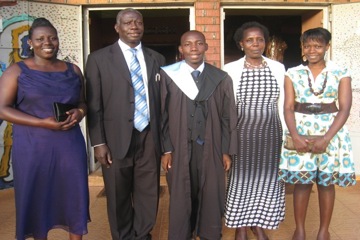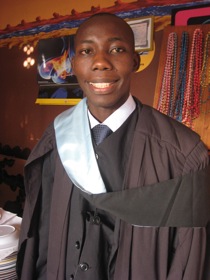
Photos: author
“Humans learn. That is what we do. It is part of who we are.”
Masaba’s father, a slow-speaking pillar of a man, stood before us next to a pole flashing with Christmas lights. With red, green, orange, and blue light splashing across his face, he said, “If you cease to learn, you perish.”

